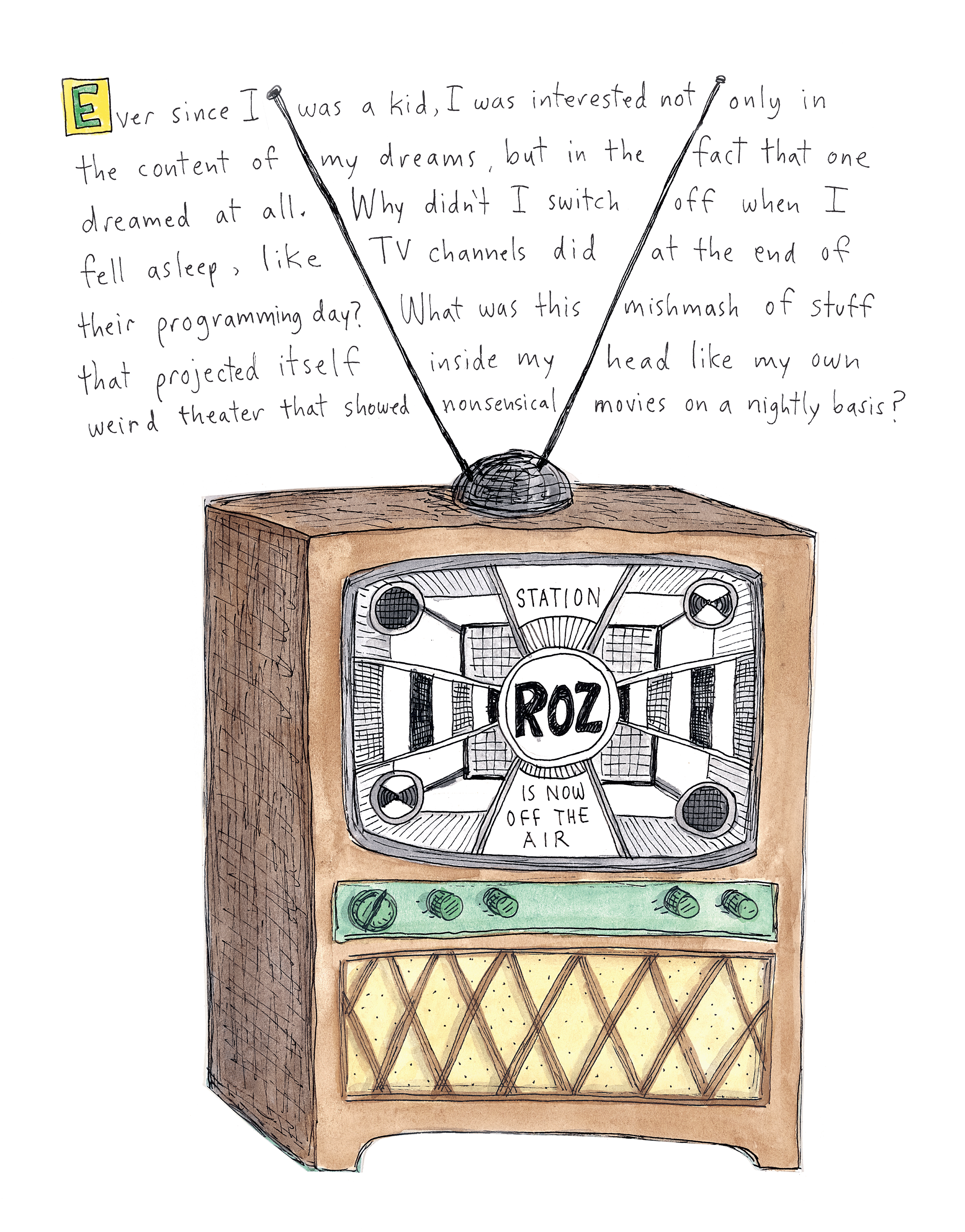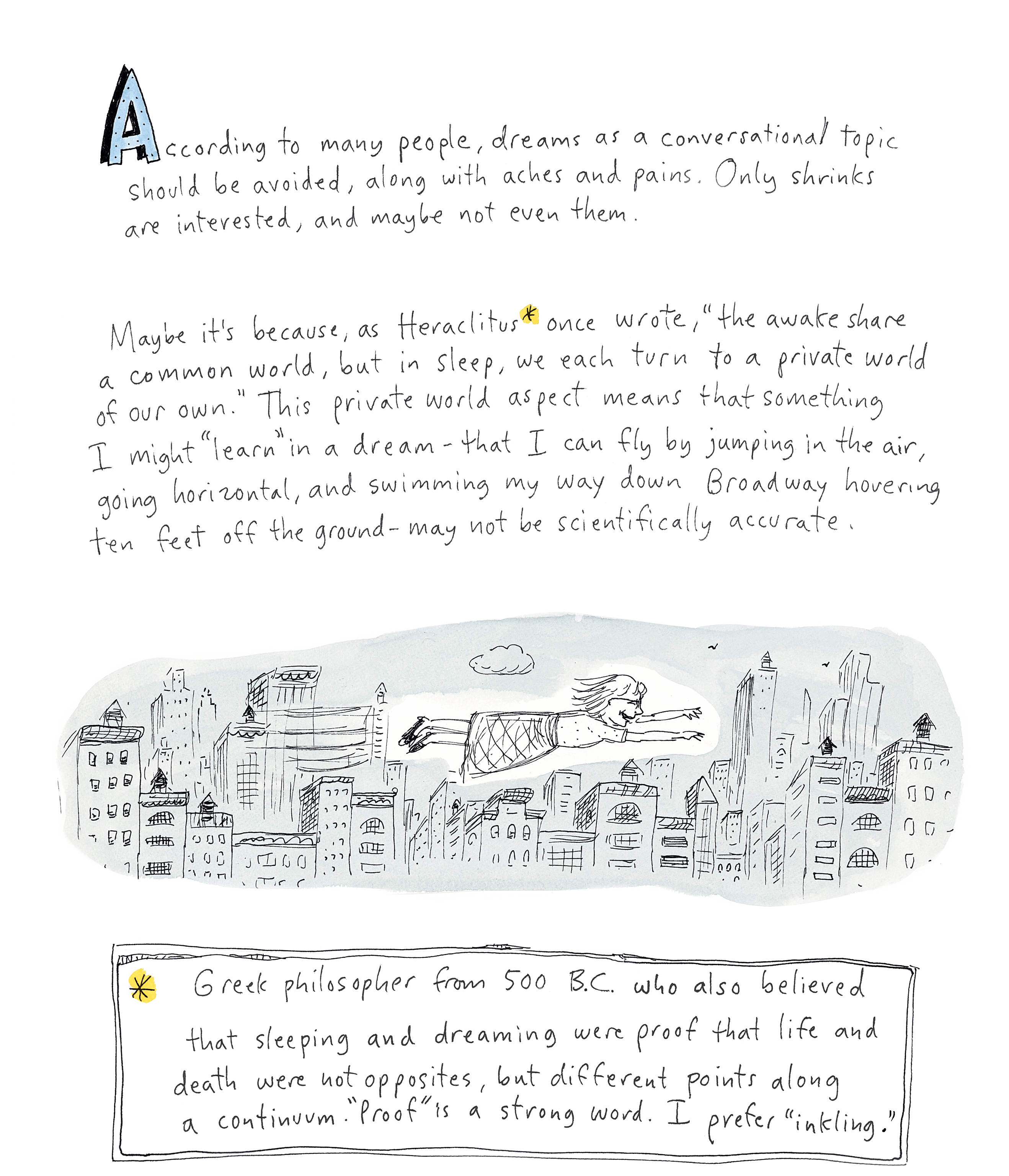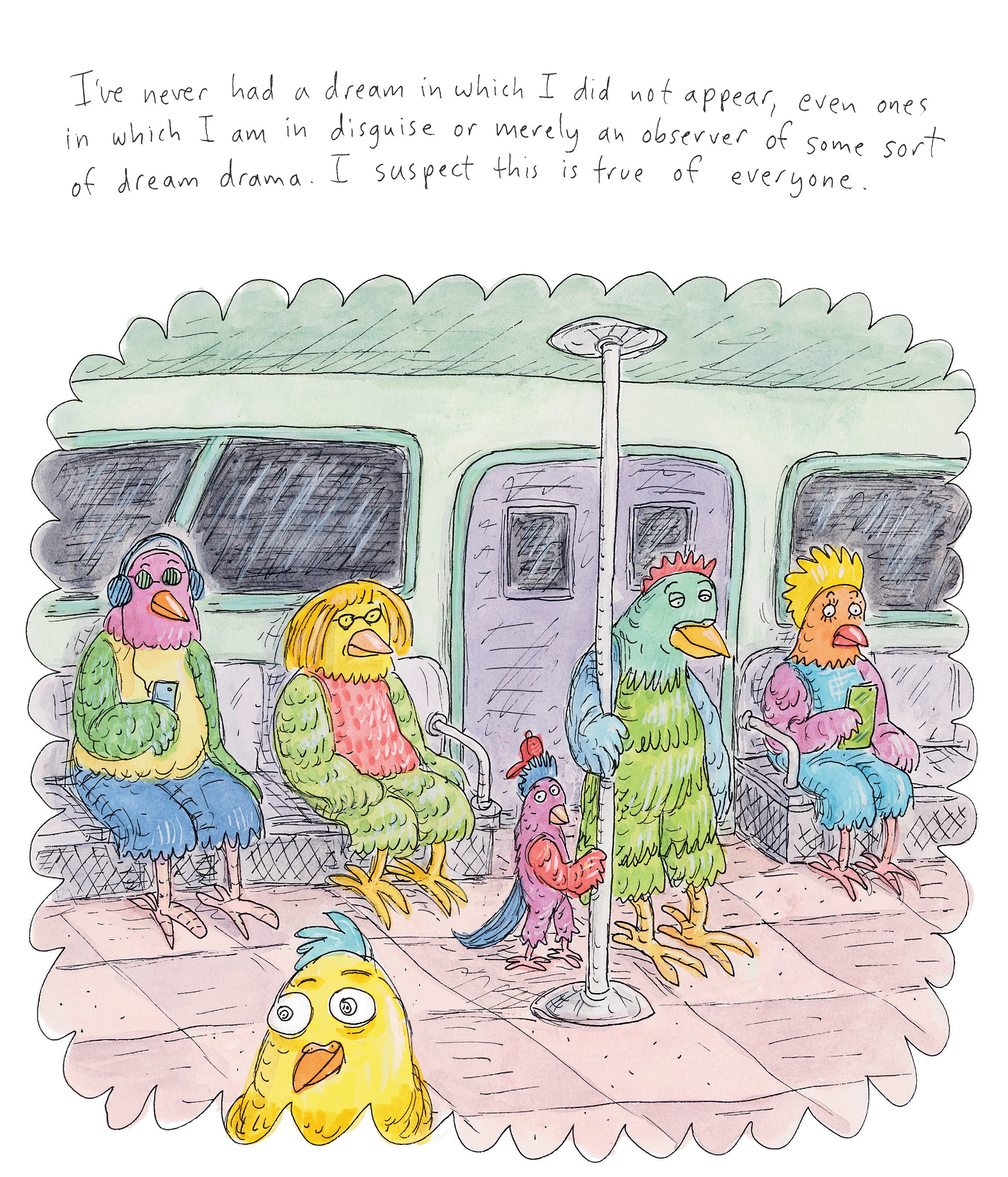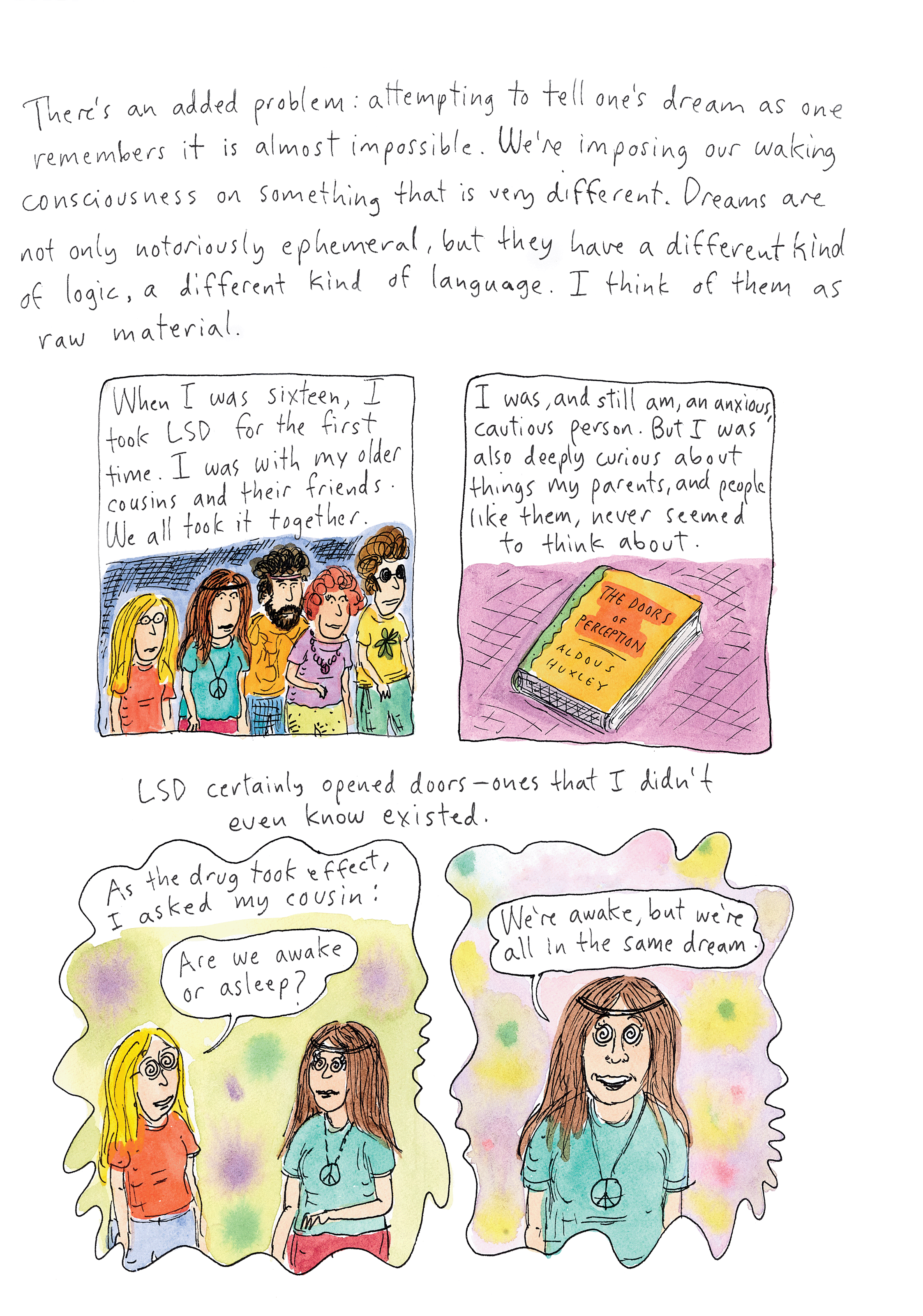As a child, Roz Chast lost an Oreo in the liminal space between dreaming and waking life.
“I was just on the verge of biting into it,” Chast said. “I woke up and I was sad because it wasn’t real. What was that?”
In her book, “I Must Be Dreaming,” the New Yorker cartoonist lets us into her personal dream world through her drawings.
Dreams are funny, confusing and surprising in Chast’s world. And they are occasionally disturbing and maybe necessary to process both our everyday and most bizarre thoughts, she tells Shannon Henry Kleiber of “To The Best Of Our Knowledge.”

Dreams can be rooted in stress and worry over daily life, but often Chast emerges back into reality, amused by the mishmash of her personal dream logic.
“I’ve occasionally woken up laughing from a dream because there’s something about it that just makes me laugh — in addition to the fact that it’s surprising and kind of peculiar,” she told TTBOOK.

“Dreams are famous for being a bad conversational topic. And I think part of it is the way sometimes people tell their dreams … is not structured the way like a traditional narrative is,” said Chast. “I think that there’s enough information in a dream that if you want, you can tell it in a way where it is a little bit of a story.”
Chast’s own dreams, recounted in cartoon panels, only make sense if one accepts that taking flight or riding a subway car full of humanoid chickens as matter-of-fact occurrences, not in need of preamble or explanation.

Dream logic connects unconnected and unrelated images and ideas in the subconscious, but Chast said this doesn’t prevent us from trying to share them in conscious life.
“I had a dream where this interior designer told me very seriously, ‘Cushions are the juice of the house,’ and it just almost makes sense. It really doesn’t make any sense at all, but it sounds kind of close to something that might make sense if you just look at it a little from the side, maybe,” she said. “But I love stuff like that.”

The idea of connection beyond our understanding appeals to Chast, and dreams connect to that idea for her.
“I don’t think that dreams are necessarily predictive, but they give us insight into our own consciousness, into what we’re thinking about, which is more personal unconscious, which would be Freud,” Chast said. “And they connect us all at some deeper level, which would be more of a Jungian thought.”

